The 10 best free things to do in Madrid
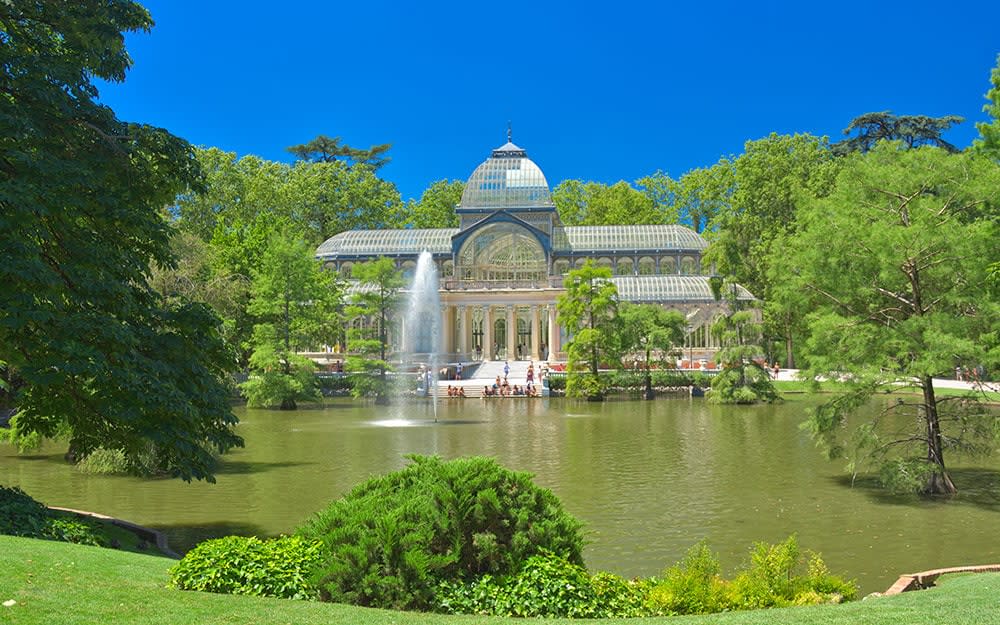
Whether you're on a budget or just want to save your euros to splurge on a fantastic hotel, there are plenty of free sights and activities in Madrid to fill your days. Be sure to check out the secret metro station Platform Zero, watch the sunset from the city's real Egyptian temple, and contemplate contemporary art at Matadero.
Our local expert gives her tips on the best free things to do in Madrid.
For further inspiration, see our guide to Madrid and the city's best hotels, restaurants, bars, tapas, nightlife, shops and things to do.
Find free things to do by area
Plaza Mayor, Opera and La Latina
Ramble through historic squares
Get a flavour of Madrid’s history in the Plaza Mayor, which dates back to the 17th century and is framed by red-brick buildings and slate turrets. Next, wander along to the Plaza de la Villa, the oldest square in Madrid. Walk down to Cava Baja, which traces the curve of the old city wall and leads to Plaza de la Paja, where the medieval atmosphere contrasts with the lively vibe at the pavement cafés. This is one of the best areas for tapas bars, particularly along Calle Cuchilleros and Cava Baja where traditional taverns alternate with gastrobars.
Contact​: esmadrid.com
Nearest metro:​ ​Sol
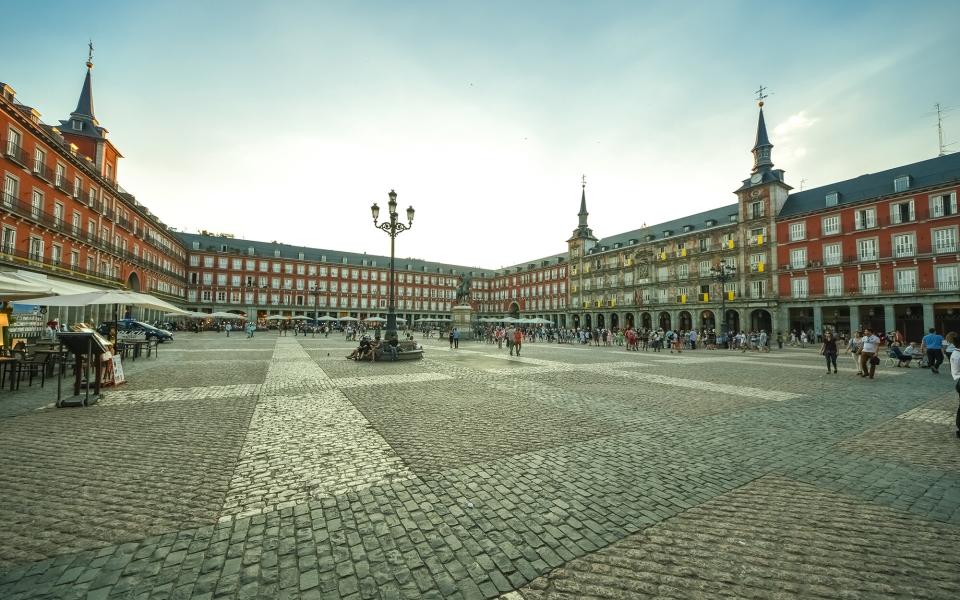
Explore buzzing Chueca
There are lots of free tours in Madrid – you are expected to tip your guide – with routes based on history, art, architecture, food, nightlife, flamenco and more. You could choose a walk around Chueca, the hub of LGBTQ life in Madrid, where the streets and squares are packed with bars, restaurants, galleries and independent shops. The guide points out some of the most famous venues in the area, some of which have been there for decades, others showcasing the more contemporary image of the barrio, which is one of the most fashionable in the city.
Contact: freetour.com
Nearest metro: Chueca
Trace the city's history
The Museum of San Isidro charts Madrid’s origins from prehistoric times until the establishment of the court in the 16th century, giving an easy-to-follow overview of how the city developed over time. Madrid’s patron saint, San Isidro Labrador, who was born in the 11th century, is believed to have lived in a house on this site. Displays show the many miracles he performed – the most famous of which involved rescuing his boss’s baby from a well. Fragments remain from the 16th and 17th centuries in the traditional building set around a Renaissance courtyard with a small botanic garden.
Contact: esmadrid.com
Nearest metro: La Latina
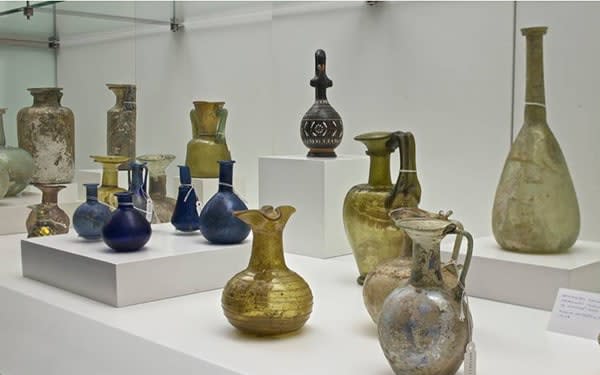
Puerta del Sol and Gran Vía
See Goya paintings with no crowds
Despite being right in the centre opposite the Four Seasons Madrid hotel, the Real Academia de Bellas Artes de San Fernando – Madrid’s version of the Royal Academy – is rarely crowded and is free on Wednesdays (reasonably priced at other times). Founded in the 18th century and housed in a grand neoclassical building, the collections include paintings by Goya, El Greco, Van Dyck, Zurbarán, Velázquez, Rubens, Arcimboldo and Picasso.
Insider’s tip: If the chalcography section is open, go in to see the superb Goya etchings.
Contact: realacademiabellasartessanfernando.com
Nearest metro: Sevilla or Sol
Barrio de las Letras and Lavapiés
Search for souvenirs at a huge flea market
Trawling around the sprawling Rastro flea market on Sunday mornings, looking at random tat and popping in and out of bars, has long been a favourite activity in Madrid – particularly if you haven’t actually made it to bed and are just merrily carrying on from Saturday night. Chipped crockery, old keys, big pants… it’s all here. The main drag is Ribera de Curtidores but veer off into the side streets and dive into tiny shops selling antiques, vintage clothes and old records. Pickpocketing is rife, so take as little as possible and keep your important stuff hidden.
Contact: esmadrid.com
Nearest metro: Tirso de Molina
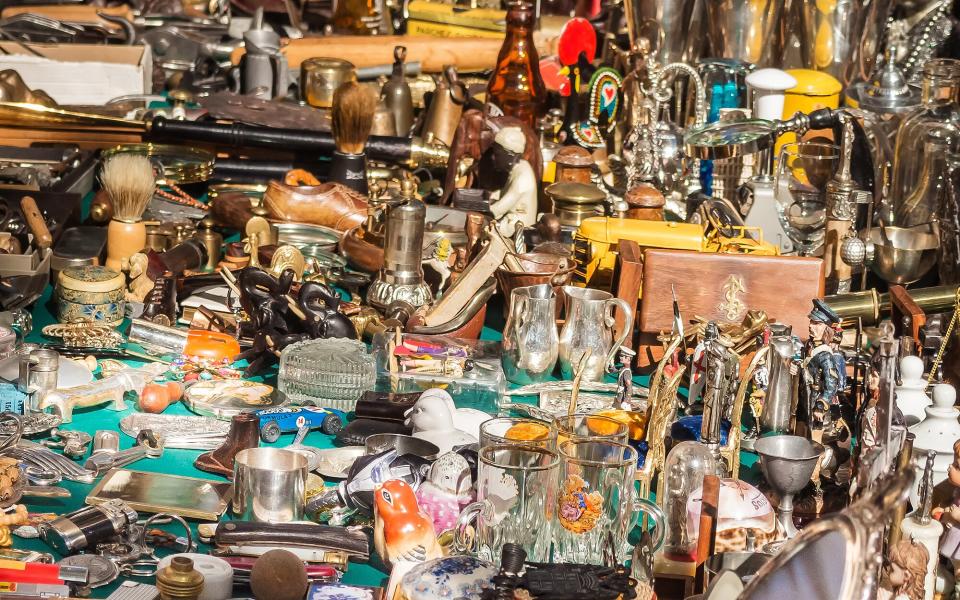
Chamberí
Explore a secret metro station
Chamberí metro station, which closed in 1966, has been given a new life as Platform Zero. It was originally designed in 1919 by Antonio Palacios, the architect who was responsible for many of Madrid’s signature buildings. Today, it has been restored to its former splendour, complete with ticket office, white brick-tiled vaulted corridors and ceramic advertising panels. Displays chart the history of the Madrid metro system over the past century, from its origins to the present day. You can also see the original engines in the adjoining Motores de Pacífico building.
Contact: esmadrid.com
Nearest metro: Alonso Martínez

Plaza de Espa?a and Moncloa
Watch the sun slip away at an Egyptian temple
It is a bit of surprise to come across an authentic Egyptian temple in an urban park in Madrid. The Debod Temple is more than 2,000 years old – the structure was given to Spain in 1968 after Spanish archaeologists helped save Abu Simbel from flooding when the Aswan Dam was built. It was recreated stone by stone on the western edge of the city centre and is aligned with the setting sun, as it was originally in Egypt, making this one of the most dramatic and romantic spots in the city at dusk – although you might have to wait your turn to use the best spot for a photograph.
Contact: templodedebod.memoriademadrid.es
Nearest metro: Plaza de Espa?a
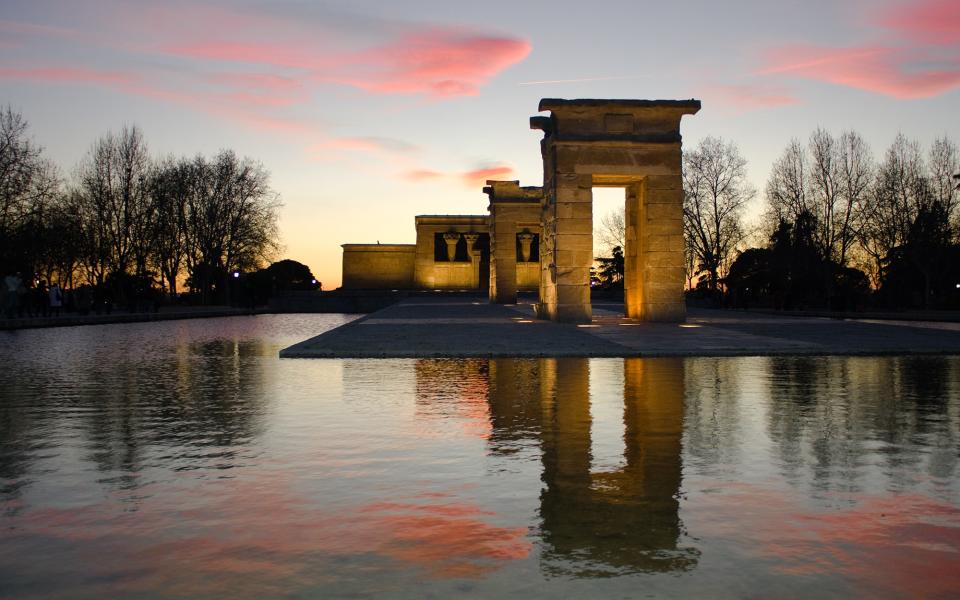
Paseo del Prado and The Retiro Park
Immerse yourself in the city's finest architecture
The gloriously ornate former main post office, grandly known as the Palacio de Comunicaciones, now houses the city hall and the Centro Centro cultural centre. This is the signature building by the extraordinary architect Antonio Palacios, who designed it with Joaquín Otamendi at the beginning of the 20th century. While there is sometimes a small fee for temporary exhibitions, anyone can roam around the sumptuous building for no charge – or just sit down and use the free Wi-Fi or browse the newspapers; this is a comfortable spot for a rest when sightseeing. There are also free guided tours daily (see website for times).
Contact: centrocentro.org
Nearest metro: Banco de Espa?a
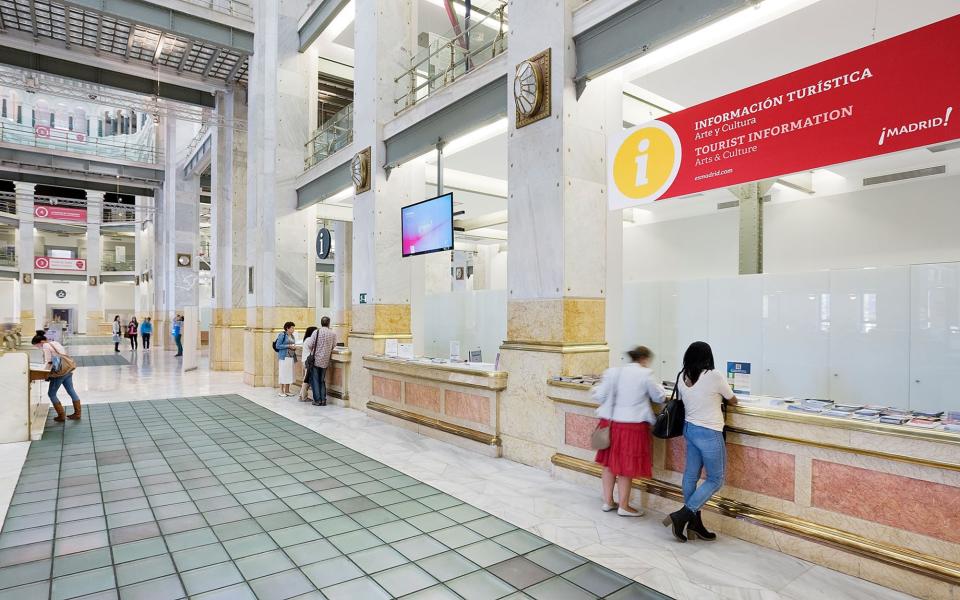
Madrid Río and Casa de Campo
Be a contemporary culture vulture
Down by the Manzanares river, a complex of neo-Mudéjar, red-brick pavilions – built a century ago to house the city’s slaughterhouses – has been given a new lease of life as a dynamic cultural centre. The Matadero is used for all sorts of exhibitions, performances, concerts, festivals and other events, with a focus on design and creativity. The Cineteca cinema specialises in screening documentaries, while Naves Matadero, under the auspices of the Teatro Espa?ol, stages experimental theatrical works. There are also recording studios, workshops and activities for children, as well as a café.
Contact: mataderomadrid.org
Nearest metro: Legazpi
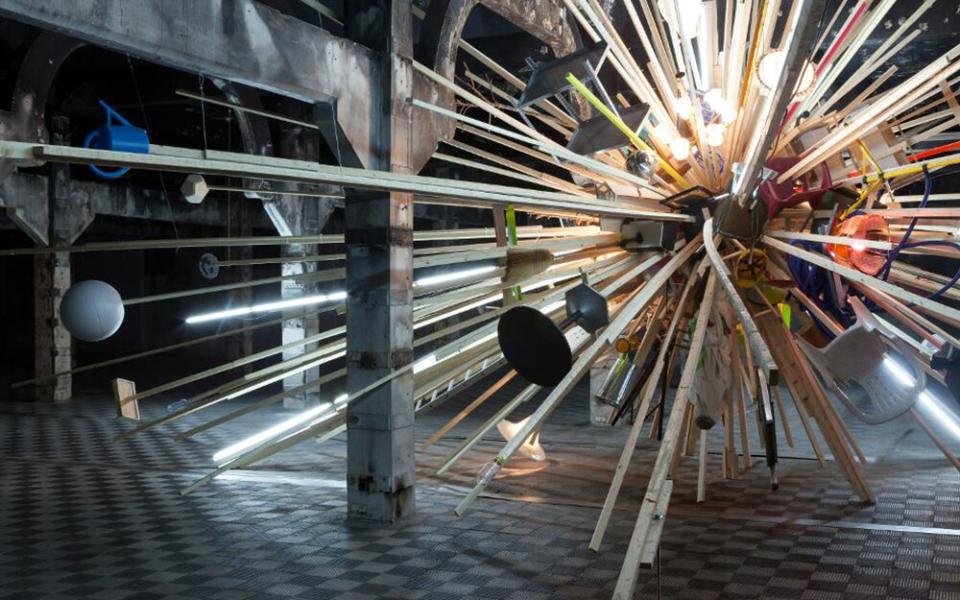
Picnic and people watch in the park
The banks of the Manzanares river are home to an urban park, known as Madrid Río, where Madrilenians stroll, run, cycle and skateboard. In summer, children let off steam in the playgrounds and paddle in the shallow pools. Pack a picnic and cross over to the vast Casa de Campo park, which was originally a royal hunting ground and now contains a zoo, funfair, outdoor pool and a string of restaurants around its huge lake. Look back up towards the city centre for a spectacular view of the Royal Palace and the Almudena cathedral against a backdrop of slate spires.
Contact: esmadrid.com
Nearest metro: Príncipe Pío, Marqués de Vadillo or Legazpí
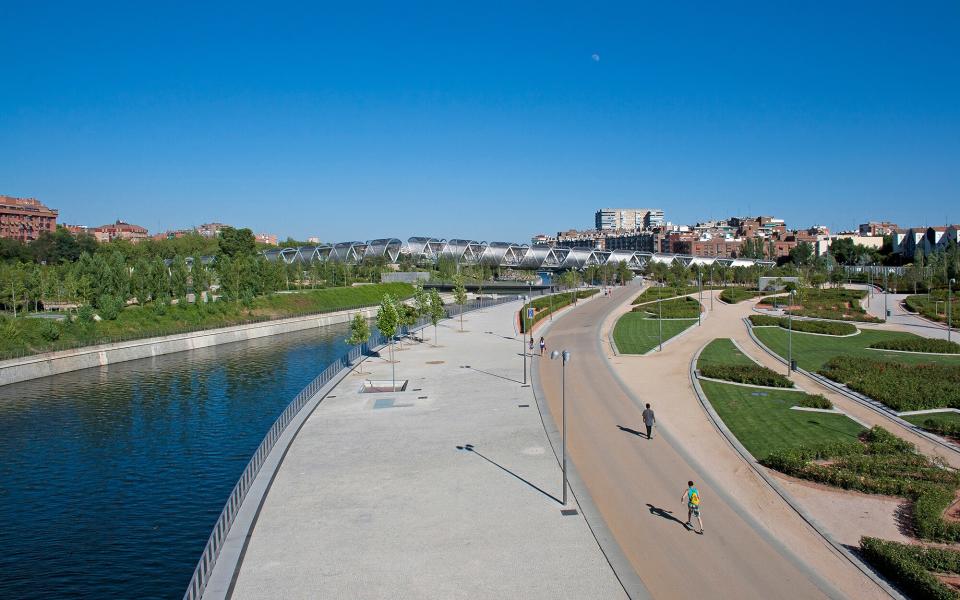
How we choose
Every attraction and activity in this curated list has been tried and tested by our destination expert, to provide you with their insider perspective. We cover a range of budgets and styles, from world-class museums to family-friendly theme parks – to best suit every type of traveller. We update this list regularly to keep up with the latest openings and provide up to date recommendations.